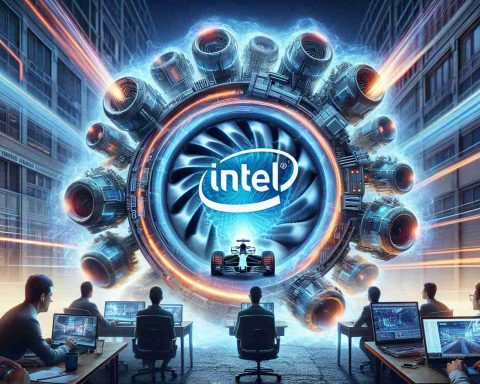The Future of Semiconductor Stocks
The semiconductor sector has witnessed unprecedented growth recently, driven primarily by the escalating demand for artificial intelligence (AI). Over the past two years, key technology indices have reported impressive performance, with the Nasdaq jumping 70% since the launch of ChatGPT in late 2022.
Amid these advancements, semiconductor firms have emerged as frontrunners in the tech race. Semiconductors serve crucial functions in generative AI, powering complex algorithms and managing extensive data requirements. Among the various players in this space, Taiwan Semiconductor Manufacturing Company (TSMC) stands out as a pivotal investment opportunity for the coming decade.
What sets TSMC apart is its extensive manufacturing capabilities and its partnerships with major brands like Nvidia, AMD, and Broadcom. Despite the inherent volatility in the semiconductor market, TSMC’s innovative fabless manufacturing processes offer a buffer against competition and cyclical downturns, thereby enhancing its resilience.
With technology giants—Microsoft, Amazon, and Google—projecting hefty investments in AI infrastructure, TSMC stands poised to benefit significantly. Analysts predict that upcoming releases of new GPU technologies from Nvidia and AMD will further cement TSMC’s integral role in the industry.
Despite a 107% growth in the past year, TSMC shares remain attractively priced compared to broader market valuations, indicating strong potential for continued expansion. Investors should carefully consider TSMC as a strategic addition to their portfolios as AI technology evolves.
The Future of Semiconductor Stocks and Their Broad Implications
The semiconductor sector is at the forefront of technological advancement, with explosive growth driven primarily by the burgeoning demand for artificial intelligence (AI). This rapid expansion not only transforms the financial landscape, with key technology indices like the Nasdaq experiencing a remarkable 70% increase since the inception of ChatGPT in late 2022, but it also raises significant questions about its implications for the environment, humanity, and the future of our global economy.
As a cornerstone of modern technology, semiconductors play a critical role in enabling generative AI, powering intricate algorithms and managing vast amounts of data. Companies like Taiwan Semiconductor Manufacturing Company (TSMC) are now more important than ever, leveraging advanced manufacturing techniques to support major players like Nvidia, AMD, and Broadcom. Their innovations are not just enhancing profitability; they are reshaping how technology interacts with societal needs.
However, the exponential growth in AI and related technologies does not come without environmental consequences. The production of semiconductors is resource-intensive, requiring significant amounts of water and energy. TSMC, for instance, has faced scrutiny over its environmental footprint, particularly in water-scarce regions such as Taiwan. The challenge is to balance the demand for sophisticated chips with sustainable practices.
As the world leans increasingly on AI, the environmental impact of semiconductor manufacturing becomes ever more critical. The production processes must evolve to incorporate green technology, waste reduction strategies, and alternative materials. Companies in the semiconductor industry have the potential to lead in sustainable technology initiatives, promoting renewable energy usage and efficient water management to mitigate their ecological impact.
Humanity’s relationship with technology is also shifting. The advancing capabilities powered by semiconductors promise major benefits such as improved healthcare, enhanced education systems, and optimized supply chains. However, they also risk further entrenching inequalities if access to these technologies remains uneven. As new AI systems automate various aspects of work, the workforce must adapt accordingly. Education and training will become paramount, ensuring that people can transition into new roles that require proficiency with emerging technologies.
From an economic perspective, the semiconductor industry is a vital engine for growth. The emphasis on AI infrastructure investments from leading companies like Microsoft, Amazon, and Google suggests that demand for semiconductors will continue to surge. However, this creates a dual-edged sword. While investors may see attractive returns, regions that host semiconductor manufacturing capabilities must also prepare for potential economic volatility associated with the cyclical nature of the semiconductor market.
Looking toward the future, the trajectory of semiconductor stocks, particularly leaders like TSMC, also hints at a broader narrative concerning global technology leadership. Nations and companies that can innovate while maintaining sustainable practices will likely dominate the technology sector in the coming decades. The need for collaboration across borders to achieve technological and environmental goals presents an opportunity for nations to engage in partnerships focused on sustainable development.
In conclusion, the semiconductor industry’s growth is not just a financial statistic; it is a reflection of humanity’s ongoing technological evolution and its intertwined relationship with environmental stewardship and economic stability. As we step further into the AI era, navigating the complexities of this sector will be key to ensuring a prosperous and equitable future for all. By prioritizing sustainability and accessibility, we can harness the power of semiconductors to create a better world.
Harnessing AI: The Future of Semiconductor Stocks and What You Need to Know
The Future of Semiconductor Stocks
The semiconductor industry is entering a transformative phase, buoyed by the explosion in artificial intelligence (AI) applications across various sectors. This surge is not only disrupting traditional markets but is also leading to substantial advancements within the semiconductor sphere, marking an unprecedented growth trajectory for companies in this space.
Trends in Semiconductor Growth
The last couple of years have seen remarkable advancements in semiconductor technology, primarily influenced by escalating demands from AI and machine learning sectors. As technology firms continue to invest in AI capabilities, demand for sophisticated semiconductors is expected to rise. Notably, companies are focusing on enhancing chip performance to support the growing complexity of AI-driven applications.
Insights on Key Players
Among the myriad of companies in the semiconductor space, Taiwan Semiconductor Manufacturing Company (TSMC) is a pivotal entity that investors are keen to watch. TSMC operates the world’s largest dedicated independent semiconductor foundry and plays a critical role in manufacturing chips for major tech brands such as Nvidia, AMD, and Broadcom.
TSMC’s competitive edge lies in its state-of-the-art manufacturing processes, which include leading-edge 5nm and 3nm technology nodes. This positions the company uniquely within a fast-evolving market, providing it with the agility to respond to emerging technologies and maintain a robust production pipeline.
Pros and Cons of Investing in Semiconductor Stocks
Pros:
– High Demand: The increasing need for AI and data processing capabilities creates a strong market for semiconductors.
– Innovation: Continuous advancements in chip technology promise to enhance efficiency and performance.
– Strategic Partnerships: Collaborations with major tech firms bolster revenue potential and market reach.
Cons:
– Market Volatility: The semiconductor industry is subject to cyclical trends and economic fluctuations.
– Competition Risks: Rapid technological advancements mean that companies must constantly innovate to stay relevant.
– Supply Chain Issues: Global events can disrupt supply chains, impacting production capabilities.
Use Cases and Innovations
Semiconductors are foundational to many cutting-edge technologies, including:
– Artificial Intelligence: AI systems rely on high-performance chips to process vast amounts of data effectively.
– Internet of Things (IoT): Smart devices require specialized semiconductors for connectivity and functionality.
– Automotive Technology: Electric and autonomous vehicles depend heavily on advanced semiconductor solutions.
Pricing Trends and Market Predictions
Despite a remarkable 107% growth in TSMC shares over the past year, the stock remains appealingly priced in relation to broader market metrics. Analysts foresee that as AI technologies continue to evolve, the semiconductor market will expand, offering lucrative investment opportunities.
Security Aspects and Sustainability
With the rise of AI and IoT, there is a growing emphasis on the security aspects of semiconductor technology. Companies are increasingly focused on developing chips that not only enhance performance but also integrate security features to protect data.
Sustainability is another crucial factor where semiconductor manufacturers are innovating. Many firms are actively seeking to minimize their carbon footprint by adopting environmentally friendly practices in chip production.
Conclusion
Investing in semiconductor stocks, particularly in leading firms like TSMC, represents a unique opportunity as the tech landscape shifts towards greater reliance on AI and enhanced computing capabilities. With strong fundamentals and a strategic position in the market, TSMC is well-equipped to potentially outperform its competitors in the long run.
For further explorations on tech innovations, visit TechCrunch to stay updated on emerging trends and insights in the semiconductor industry.



















